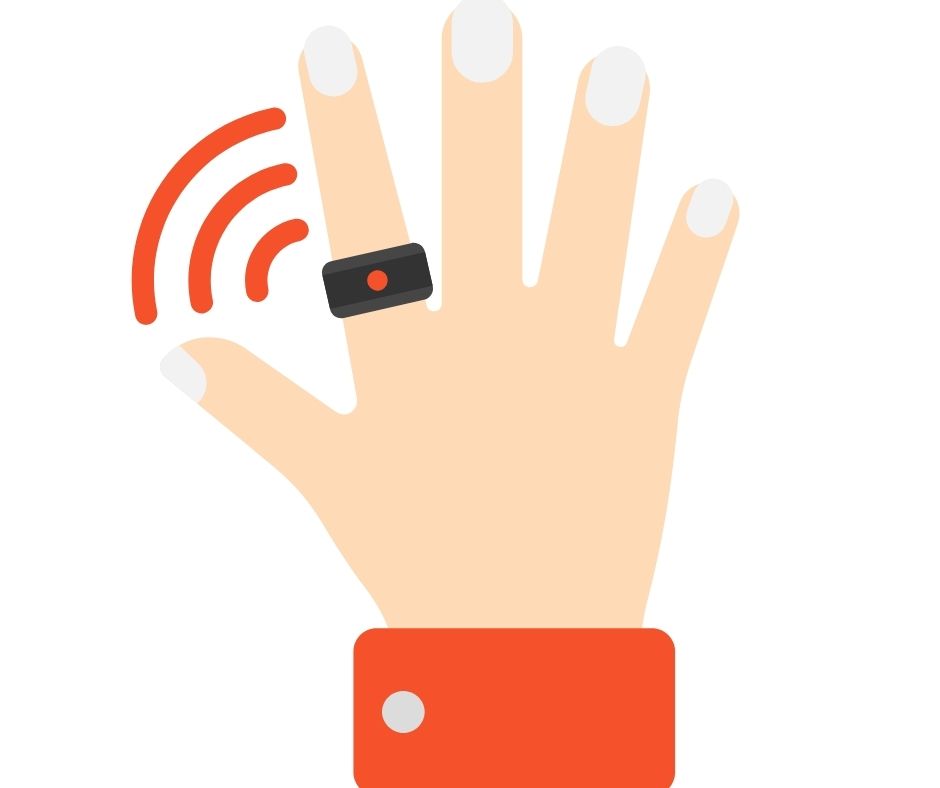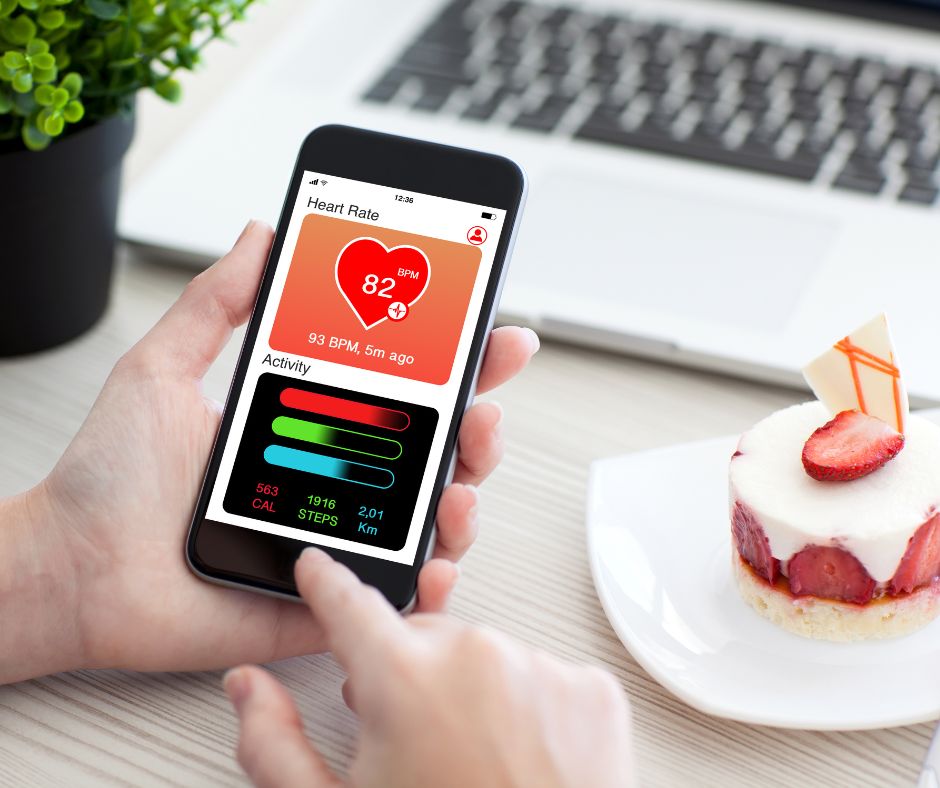As clinical trials grow in number and complexity, wearables are becoming essential. They allow for remote patient monitoring (RPM) and can track multiple health metrics at once. This is crucial as the number of trial endpoints has increased by 10% in the last ten years. Let’s explore how using wearables in clinical trials helps accelerate medical research.
Contents
Wearables in Medical Research
What are wearables?
Wearables are small, smart devices like sensors that, combined with apps, collect health data. These devices can track everything from your heart rate to how well you sleep. They’re like having a mini-lab on your wrist or body.
Wearables in clinical trials refers to all types of medical tech used in medical research.
Types of wearable devices used in clinical trials

There’s a whole range of wearables being used in medical research:
- Smartwatches (like Apple Watch or Fitbit)
- Fitness trackers
- Biosensors (devices that measure specific body functions)
- Medical-grade devices (like continuous glucose monitors)
The popularity of wearables in research
Wearables are taking the medical research world by storm. The use of wearables in clinical trials has grown by 50% from 2015 to 2020 (Marra et al., 2020).
Wearable devices make collecting health data easier for medical researchers. They allow for real-time analysis of large data sets and help identify health trends, which brings ease and precision to clinical trials and medical studies.
Benefits of Using Wearables in Clinical Trials
Why are researchers so excited about wearables? Let’s break it down.
Real-time data collection and monitoring

Imagine getting a constant stream of health data from patients, 24/7. Wearables allow clinicians to monitor real-time data, so there’s no more waiting for patients to come in for check-ups or relying on their memory of symptoms.
Improved patient engagement and compliance
People are more likely to stick with a study when they’re using familiar devices. RPM systems often include medication reminders and tracking features, which can significantly improve adherence rates.
Enhanced accuracy and objectivity of data
Wearables don’t forget or exaggerate. They provide hard data without human error or bias. Combining wearable sensors and advanced software in clinical trials is one of the best ways to make sure the data is accurate (Seitz, 2023).
Cost-effectiveness and efficiency in trial conduct
Wearable tech in healthcare shows promise for better data collection and analysis-–it can improve disease understanding, treatments, and clinical trials (Izmailova et al., 2018).
By reducing the need for in-person visits and automating data collection, wearables can cut trial costs by up to 60% (Coravos et al., 2019).
How Wearables Are Used in Clinical Trials
How are wearables being used in real studies? Let’s look at some examples.
Continuous vital sign monitoring
Wearables can track heart rate, blood pressure, and even oxygen levels around the clock. This is especially useful in studies of heart conditions or respiratory diseases.
Activity and sleep tracking

These devices can measure how much you move and how well you sleep. This data is valuable for studies on conditions like insomnia or chronic fatigue syndrome.
Medication adherence tracking

Some smart pill bottles can remind patients to take their medication and record when they do. This helps clinicians know if patients are following the treatment plan.
Remote patient monitoring and telemedicine integration
Wearables allow doctors to check on patients from afar. This is particularly helpful for patients who live far from research centers or have mobility issues.
In a study of patients with Parkinson’s disease, wearable sensors were used to track movement patterns. This allowed researchers to measure the effectiveness of a new treatment more accurately than traditional methods (Espay et al., 2016).
Challenges and Limitations of Wearables in Clinical Trials
While wearables offer many benefits, they also come with some challenges.
Data privacy and security concerns

With so much personal health data being collected, keeping it safe is a top priority. Researchers need to ensure that patient information is protected from hackers and unauthorized access.
Regulatory hurdles and FDA approval processes
Getting new devices approved for use in clinical trials can be a long and complex process. The FDA has strict rules about what devices can be used and how data can be collected.
Integration with existing clinical trial systems
Many research centers have established systems for collecting and analyzing data. Integrating wearable data into these systems can be tricky and time-consuming, but can be overcome.
Potential for data overload and interpretation issues
Wearables can generate massive amounts of data. Sorting through all this information and making sense of it can be overwhelming for researchers.
One study found that while 79% of clinical trials were interested in using wearables, only 39% felt confident in their ability to manage and analyze the data effectively (Walton et al., 2015).
Best Practices to Incorporate Wearables in Clinical Trials
To make the most of wearables in clinical trials, researchers should follow these best practices.

Select appropriate wearable devices for specific trial needs
Not all wearables are created equal. Researchers must choose devices that are scientifically relevant to the study’s endpoints and can gather precise, valid data.
The goal is to collect meaningful information that significantly contributes to the study’s outcomes and conclusions, rather than just monitoring for the sake of it (Rudo & Dekie, 2024). For example, a sleep study might need a device with advanced sleep-tracking capabilities.
Ensure data quality and validation
It’s crucial to verify that the data collected by wearables is accurate and reliable. This often involves comparing wearable data with data from traditional medical devices.
Train participants and researchers on proper device use
Both patients and research staff need to know how to use the wearables correctly. Good training can improve data quality and reduce errors.
Develop robust data management and analysis protocols
With so much data coming in, having a solid plan for managing and analyzing it is essential. This may involve using specialized software or working with data scientists.
Steinhubl et al. (2018) researched how heart failure patients used wearable sensors to track daily activity. By carefully selecting devices and training participants, the researchers collected high-quality data leading to new insights about the progression of heart failure.
Future Trends and Innovations
What’s next for wearables in clinical trials? Let’s take a peek.

AI and machine learning integration for data analysis
As the amount of data grows, artificial intelligence (AI) and Internet of Things (IoT) will play a bigger role in making sense of it all. AI can help spot patterns and trends that humans might miss.
Multi-modal sensors
Multi-modal sensors in wearables combine different types of sensors in one device to give a more complete picture of a patient’s health (Sietz, 2023). It can include body sensors, environmental sensors, and even imaging tech to gather a wide range of data for clinical studies.
Expanded use of wearables in decentralized clinical trials
More trials are moving away from traditional research centers. Wearables make it possible to conduct studies with patients in their own homes, opening up research to a wider group of people.
Potential for personalized medicine and treatment optimization
By collecting detailed, individual health data, wearables help tailor treatments to each patient’s unique needs.
Conclusion
Wearables are becoming an integral part of clinical trials, offering new insights into patient health and treatment efficacy. These smart devices are likely to revolutionize medical research, leading to faster, more efficient, and patient-centric clinical trials. Who knows–the next big medical breakthrough might come from a small device you can wear.
References
Coravos, A., Khozin, S., & Mandl, K. D. (2019). Developing and adopting safe and effective digital biomarkers to improve patient outcomes. NPJ digital medicine, 2(1), 1-5.
Espay, A. J., Bonato, P., Nahab, F. B., Maetzler, W., Dean, J. M., Klucken, J., … & Papapetropoulos, S. (2016). Technology in Parkinson’s disease: Challenges and opportunities. Movement Disorders, 31(9), 1272-1282.
Izmailova, E. S., Wagner, J. A., & Perakslis, E. D. (2018). Wearable Devices in Clinical Trials: Hype and Hypothesis. Clinical Pharmacology & Therapeutics, 104(1), 42-52.
Marra, C., Chen, J. L., Coravos, A., & Stern, A. D. (2020). Quantifying the use of connected digital products in clinical research. NPJ digital medicine, 3(1), 50.
Seitz, S. (2023). Wearable sensors have already enhanced clinical trials and their impact in this market is only going to grow as technology advances. Find out what clinical trial applications and opportunities exist for your innovative wearable technology company. Sequenex. Retrieved from https://sequenex.com/blog/enhancing-clinical-trials-with-wearable-sensors-and-software-solutions/
Steinhubl, S. R., Waalen, J., Edwards, A. M., Ariniello, L. M., Mehta, R. R., Ebner, G. S., … & Topol, E. J. (2018). Effect of a home-based wearable continuous ECG monitoring patch on detection of undiagnosed atrial fibrillation: the mSToPS randomized clinical trial. Jama, 320(2), 146-155.
Todd Rudo, T., & Dekie, L. (2024). The Future Fit of Wearables for Patient-Centric Clinical Trials. Applied Clinical Trials, 33(4).
Walton, M. K., Powers, J. H., Hobart, J., Patrick, D., Marquis, P., Vamvakas, S., … & Burke, L. B. (2015). Clinical outcome assessments: conceptual foundation—report of the ISPOR Clinical Outcomes Assessment–Emerging Good Practices for Outcomes Research Task Force. Value in Health, 18(6), 741-752.
Wearable Technology Clinical Trials: All You Need To Know About 5 Wearable Devices And Wearable Sensors. Learning Labb Research Institute. (n.d.) Retrieved from https://llri.in/wearable-technology-clinical-trials/
Williams, K. (2023). The Future of Clinical Trials: Embracing Wearables and Beyond. Datacubed Health. Retrieved from https://www.datacubed.com/the-future-of-clinical-trials-embracing-wearables-and-beyond-2/

















